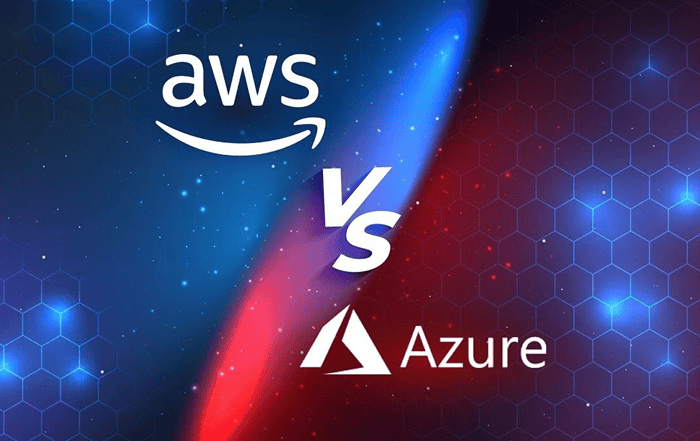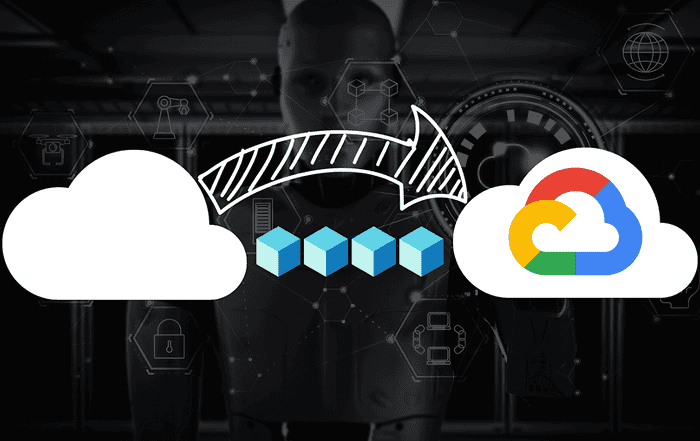
In today’s rapidly evolving technological landscape, efficient and scalable application deployment is crucial for businesses to stay ahead of the competition. Traditional deployment models often struggle to meet the demands of modern software development. However, containerization has emerged as a game-changing solution, empowering developers to build, ship, and run applications seamlessly across various environments. In this blog post, we will explore the world of containers in Amazon Web Services (AWS) and understand how they revolutionize the application deployment process.
Understanding Containers:
Before diving into AWS-specific implementations, it’s important to grasp the concept of containers. Containers provide a lightweight and isolated runtime environment for applications, encapsulating their dependencies and allowing them to run consistently across different computing environments. Unlike virtual machines, containers share the host system’s kernel, resulting in faster startup times, improved resource utilization, and enhanced scalability.
AWS Elastic Container Service (ECS):
AWS Elastic Container Service (ECS) is a fully managed container orchestration service that simplifies the deployment and management of containers. It supports Docker containers and enables seamless integration with other AWS services, making it an excellent choice for running containerized applications.
Key features of ECS include:
a. Cluster Management: ECS allows you to create and manage clusters of EC2 instances or use AWS Fargate, a serverless compute engine for containers. Clusters provide the underlying infrastructure for running containers and enable high availability and fault tolerance.
b. Task Definitions: Task Definitions define how a container should be launched, including the Docker image to use, resource allocation, networking configuration, and more. Task Definitions form the foundation of ECS and allow for easy scaling and deployment of containers.
c. Service Scaling and Load Balancing: ECS automatically handles load balancing across containers and enables horizontal scaling based on resource utilization or application demand. This ensures high availability and optimal performance for your applications.
d. Integration with AWS Services: ECS seamlessly integrates with other AWS services such as Amazon Elastic Load Balancer (ELB), Amazon Route 53, AWS Identity and Access Management (IAM), AWS CloudFormation, and more. These integrations enhance the overall capabilities of ECS and enable comprehensive application deployment and management.
AWS Elastic Kubernetes Service (EKS):
AWS Elastic Kubernetes Service (EKS) is a managed Kubernetes service provided by AWS. Kubernetes has gained immense popularity in the container ecosystem due to its robustness and flexibility. EKS simplifies the deployment and management of Kubernetes clusters on AWS, allowing developers to focus on their applications rather than the underlying infrastructure.
Key features of EKS include:
a. Managed Kubernetes Control Plane: EKS takes care of the heavy lifting by managing the Kubernetes control plane. This includes provisioning, scaling, and securing the control plane components, enabling you to focus on deploying and managing your applications.
b. High Availability and Scalability: EKS provides a highly available and scalable Kubernetes cluster. It automatically detects and replaces unhealthy nodes, ensuring the stability and availability of your applications.
c. Integration with AWS Services: EKS seamlessly integrates with other AWS services, enabling efficient usage of AWS resources. Integration with Elastic Load Balancer, Amazon RDS, Amazon S3, and more, allows for easy integration of your containerized applications with various AWS services.
AWS Fargate:
AWS Fargate is a serverless compute engine for containers, designed to run containers without the need to manage the underlying infrastructure. It abstracts away the complexities of managing EC2 instances and provides a serverless experience for running containers at scale.
Key features of AWS Fargate include:
a. Serverless Container Deployment: Fargate allows you to focus solely on defining and running your containers without the need to manage the underlying infrastructure. It automatically provisions and scales the required resources, providing a hassle-free deployment experience.
b. Resource Efficiency: Fargate optimizes resource utilization by dynamically allocating CPU and memory based on the requirements of your containers. This ensures efficient utilization and cost savings.
c. Seamless Integration with ECS and EKS: Fargate seamlessly integrates with ECS and EKS, allowing you to leverage their functionalities while benefiting from the serverless capabilities of Fargate.
Containers have revolutionized the way applications are deployed, offering unparalleled flexibility, scalability, and efficiency. AWS provides a rich ecosystem of container services, including ECS, EKS, and Fargate, to meet diverse deployment needs. Whether you choose the simplicity of ECS, the power of Kubernetes with EKS, or the serverless experience with Fargate, AWS offers comprehensive solutions to streamline your container-based deployments.
By embracing containers in AWS, developers can achieve faster time-to-market, improved resource utilization, and simplified application management. As the demand for agile and scalable solutions grows, containerization in AWS continues to play a pivotal role in transforming the application deployment landscape.
So, unlock the potential of containers in AWS and embark on a journey of seamless, efficient, and scalable application deployments. The future of application deployment is here, and it’s powered by containers in AWS.
Conclusion:
While discussing containers in AWS, it’s important to highlight the availability of AWS partners who can provide expert assistance and support in leveraging AWS container services. One such partner is Codelattice, an AWS Partner based in Kerala, India. Codelattice offers a range of services to help businesses effectively utilize AWS container services and optimize their containerized application deployments. Codelattice is a trusted AWS Partner with deep expertise in cloud computing and containerization. They specialize in providing end-to-end solutions and services to businesses looking to leverage the power of AWS container services for their application deployments.
Our experienced team will assess your needs, recommend the appropriate AWS container services, and help you plan a scalable and secure deployment strategy. So, if you are considering containerizing your applications in AWS or need assistance with optimizing your existing container deployments, don’t hesitate to contact Codelattice at askus@codelattice.com. Take advantage of their knowledge and experience to accelerate your containerization journey in AWS.








